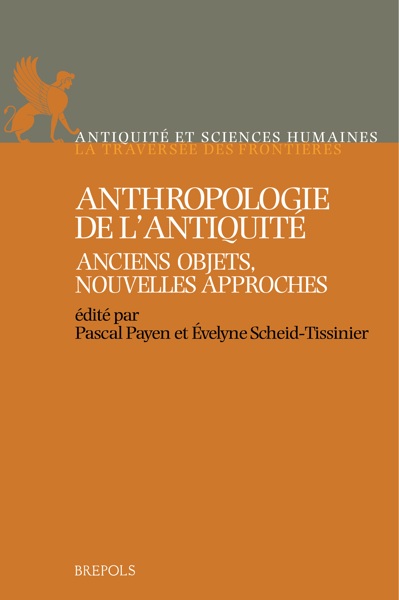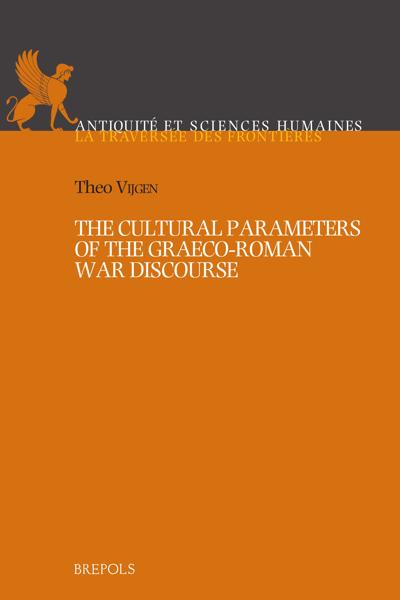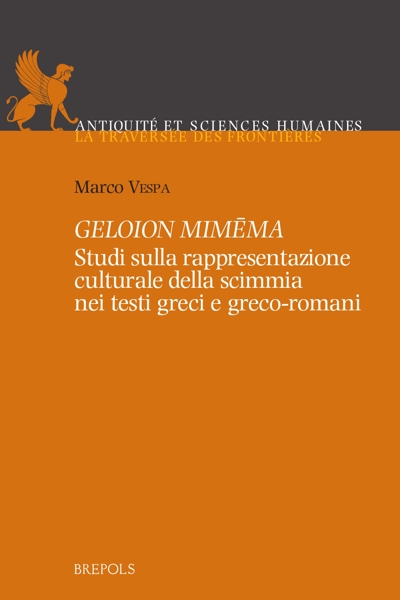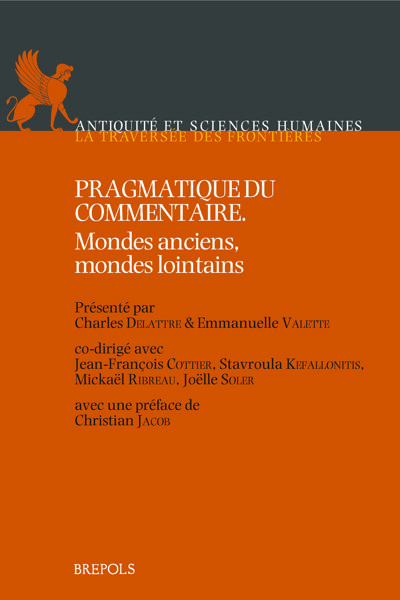
The Cultural Parameters of the Graeco-Roman War Discourse
Theo Vijgen
- Pages: 724 p.
- Size:156 x 234 mm
- Language(s):English
- Publication Year:2020
- € 120,00 EXCL. VAT RETAIL PRICE
- ISBN: 978-2-503-58647-2
- Paperback
- Available
- € 120,00 EXCL. VAT RETAIL PRICE
- ISBN: 978-2-503-58648-9
- E-book
- Available
This comprehensive study seeks to identify the interchange of ideas on warfare in the world of Classical Greece and Rome
“(...) this lengthy book serves as a valuable synthesis of many of the varied sources essential to understanding war and culture in the ancient Mediterranean. (...) by incorporating such a vast array of material this book should serve as a valuable synthesis of much work on war and culture in the ancient Mediterranean. Though it will not be the last word on the subject, I suspect, and hope, that it will help spur new research on a still understudied subject (war and culture).” (Conor Whately, in Bryn Mawr Classical Review, 2021.03.07)
“That the author demonstrates a profound knowledge of primary sources, and interprets them with charming clarity, shows the scientific depth of the study. (...) In sum, this book deserves a prominent place in the fields of Graeco-Roman history and ancient military history.” (Isaac Augustine Vasamu, in Augustiniana, 71, 2021, p. 524)
“Vijgen should be commended for a well-researched book that attempts to demonstrate how the Greeks and Romans thought about war. Many of the themes discussed throughout Vijgen’s book have been written about before; however, Vijgen discusses them chronologically and in more detail. It is a difficult endeavor to place culturally related war discourses in the ancient world in the “longue durée” but he has managed it.” (Stephen DeCasien, in Journal of Military History, 85, 2, 2021, p. 492)
“The particular merits of this book are its treatments of attitudes towards warfare and conquest under the Roman Empire (444-497) and its exposition of the evolution of Christian attitudes towards war (530-557, 589-617), which are original, clear, and full of insight.” (J. E. Lendon, in Sehepunkte, 22.10, 2022)
Theo Vijgen (1949-2020) studied English Language and Literature in the Netherlands and American Literature in the United States. He taught translation courses at the Maastricht School of Translation before turning to a study of ancient history, and completed his Ph.D. at Vrije Universiteit Brussels (VUB) in June 2018.
What were the ideas that the ancient Greeks and Romans held about warfare? What do contemporary sources tell us about this? Is it possible to trace a development in the way of thinking about war in antiquity? These are the questions that are discussed (and answered) in this study. It combines a close reading of all the sources that we have – mostly written, like literary and historiographical, but also non-written, like art, monuments and coinage. The analysis of the discourse is accompanied by and contrasted with arguments raised by today’s specialists in the field of warfare and culture of ancient Greece and Rome.
The study treats recurrent cultural themes like courage, fatherland, or victory within a chronological framework, for discourse features cannot be isolated from the context of their time. For each specific period – Greek, Hellenistic and the six parts of the long and diverse Roman time – conclusions are drawn. The remarkable developments in time that can be observed, especially in Rome, are brought together in the final chapter.
Preface
1. Introduction: Culture and War
2. The Greek Ways of War
3. Hellenistic warfare
4. Early Rome (c. 750-290 BC)
5. The Mid Republic (290-120 BC)
6. The Late Republic (120-27 BC)
7. The Augustan Period (27 BC- AD 14)
8. The Early Empire (AD 14-193)
9. The third century and the emerging Christian discourse (AD 193-c. 360)
10. Late Empire: The later 4th and the 5th centuries (c. 360-c. 500)
Conclusions
Bibliography




